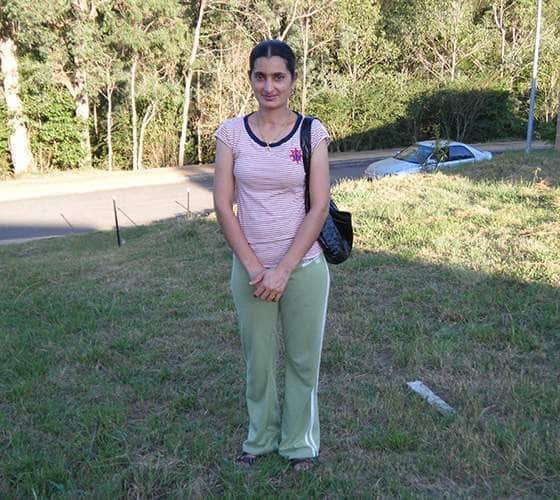Highlights
- Kulwinder Singh, accused of his wife's murder, was acquitted by the Supreme Court of NSW.
- The court heard that Parwinder Kaur may have set herself on fire before her death in December 2013.
- The Crown prosecutor alleged Mr Singh took custody of Ms Kaur's wages and they had an unhappy marriage.
- Ms Kaur hailed from a small village in Hoshiarpur district of Punjab in India. She married Mr Singh in 2005 before moving to Sydney the following year.
A verdict has been handed down in the murder trial of Kulwinder Singh, charged with setting his wife on fire at their home in Sydney’s Rouse Hill in 2013.
The jury at the Supreme Court of New South Wales pronounced the verdict on 29 March.
Mr Singh's sister, Manjinder Kaur Hothi who was present at the court, told SBS Punjabi that the family was very “happy and thankful” for the verdict.
“We are overwhelmed and deeply relieved upon hearing about his acquittal,” she said.
Ms Hothi said that she can never forget the moment when Supreme Court Justice Natalie Adams told Kulwinder that he was free to sit with his family.
“I am glad truth has prevailed and my brother is now a free man," she said.
“The last eight years have been really tough for our family. We always had faith in the justice system, but there was a lot of stress and pressure that we had to face within the community and on social media,” Ms Hothi added. The story so far
The story so far

Kulwinder Singh outside the court in Sydney on Tuesday. Source: Supplied by Ms Hothi
Parwinder Kaur, hailing from a small village in Hoshiarpur district of India’s northern state, Punjab, married Mr Singh in 2005 and moved to Sydney the following year.
She died aged 32 at a Sydney hospital on 3 December 2013, a day after a neighbour heard her blood-curdling scream and saw her engulfed in flames from the window, running down the driveway of her house with Mr Singh behind her, trying to pat the fire.
Mr Singh was later accused of killing her and was arrested in November 2017 following investigations by the New South Wales Police's Homicide Squad.
He, however, maintained his innocence and argued at trial that Ms Kaur had set herself on fire. The jury heard two versions at the trial, in which the Crown alleged that Mr Singh had poured petrol on his wife and lit the fire.
The jury heard two versions at the trial, in which the Crown alleged that Mr Singh had poured petrol on his wife and lit the fire.

A file photo of Parwinder Kaur Source: Supplied
During the trial, prosecutor Philip Hogan suggested that Mr Singh and Ms Kaur had an “unhappy marriage” and Mr Singh didn’t give her access to the wages she earned by working at a mushroom farm.
But Mr Singh’s barrister, Margaret Cunneen, argued that Ms Kaur may have set herself alight in a “deliberate act”.
Ms Cunneen told the jury that scientific evidence did not point towards the accused but towards Ms Kaur, setting herself alight “with much greater consequences than she ever meant”.
She said that “about a teacup” of petrol was poured on Ms Kaur, and the canister was placed neatly back in the cupboard with about 1.25L of fuel still left.
The petrol can and lighter in the laundry had Ms Kaur’s fingerprints, the court heard.
“Parwinder died in this way because of her choice of the acrylic cardigan and, that was her own choice on this hot day to put that on,” said Ms Cunneen. The court heard that the petrol stayed on Ms Kaur's body for five to 10 minutes before she was set alight, and she had likely worn a towel on her head to protect her hair and face.
The court heard that the petrol stayed on Ms Kaur's body for five to 10 minutes before she was set alight, and she had likely worn a towel on her head to protect her hair and face.

Kulwinder Singh has been found not guilty of murdering his wife. Source: AAP Image/Dan Himbrechts
"But an accident it was, ladies and gentlemen, and the protection of the hair, with the towel, the protection, which didn't work, with the cardigan, are things that she did to herself and really the last straw for the Crown case is the big distance in time between the pour of petrol and the ignition," she said.
“Ms Kaur may have been inspired by a Bollywood movie [Gadar: Ek Prem Katha] to set herself alight only to "create a scene" that would stop her husband from leaving the house and to regain her financial security,” the court heard.
"She didn't want her husband walking away with her financial security that she needed to back the immigration of her recently-married sister, about which she had not told her husband or any of the family," Ms Cunneen said.
The acquittal marks the end of this second trial, while the first had resulted in a hung verdict in October 2019.
Readers seeking support with mental health can contact Lifeline on 13 11 14 or Beyond Blue on 1300 22 4636. More information is available at lifeline.org.au and Beyondblue.org.au
Share
